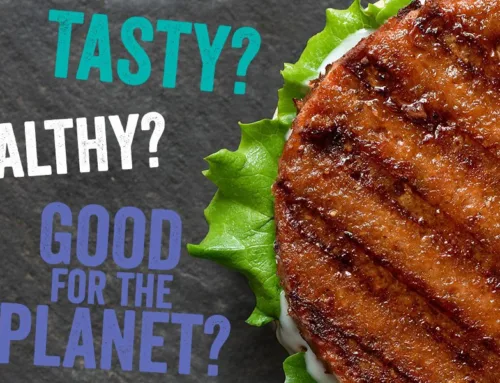Epogee News
Half of America is flexitarian. Here’s how to appeal to them.

According to recent research from Sprouts Farmers Market and One Poll almost half of Americans now consider themselves flexitarians—those who have a more heavily vegetarian diet or are “occasional” meat-eaters. For the millennial age group (those 24 to 39) the percentage is even higher at 54%. What’s more, survey respondents indicate this is not a passing fad—with 43% indicating that their flexitarian status is a “permanent lifestyle change.”
Health is the biggest motivator for the shift, according to the survey, but the desire to be more eco-friendly is also a contributing factor. It’s great news for plant-based product brands, but there’s a big catch: The majority of consumers surveyed (68%) said they would only be willing to swap plant-based meat for the real thing if it “tasted the same”. Mimicking texture and maintaining nutritional value were of almost equal importance (63% and 60%, respectively).
Mouth over mind
This high standard of sensory satisfaction may explain why plant-based meat sales have recently decelerated—and the segment has been unable to break past low single-digit market share (as a part of overall meat sales). Flexitarians, in particular, are less willing to compromise on taste and texture because they still have real burgers or chicken patties as an indulgent fallback; presumably, their motivation to embrace meat analogs (over more traditional vegetarian dishes) is not as strong as that of vegetarians or vegans.
Taste and texture are table stakes, but unlike traditional veggie staples (from salads to grain dishes), alternative meats have far more to prove when it comes to health and ethics. Critics argue that because of the new technology, processing methods and ingredients used in plant-based meat manufacturing, the jury is still out on long-term environmental and health implications. Those are the two biggest drivers to go flex in the first place—and therein lies the rub.
Intense competition on supermarket shelves doesn’t make things easier for alternative meat makers. If a product doesn’t wow flexitarians on the first try, they’re likely to move on to another brand (or abandon the category completely).
Winning the masses
For the most part, plant-based meat analogs have followed a standard formulation playbook: a similar mix of plant-based proteins, fats and starches. But judging by the state of the market, taste and texture are not where they need to be to drive growth. But where (and what) is the next ingredient innovation?
Fat is one of the biggest levers formulators can pull. New fat alternatives—sophisticated and proprietary combinations of two or more fats engineered as a single ingredient—can help. They offer a unique fatty acid composition that is closer to the density, melting point, and flavor and texture implications of animal fat.
EPG is one such ingredient—and it’s helping some of the most buzzed-about plant-based brands win over the flexitarian masses.
Looking for ways to answer to consumer demands in this challenging category? EPG is a groundbreaking alternative fat made from plant-based oil that dramatically improves the sensory attributes of plant-based meats while reducing total calories from fat.
Talk to an Epogee plant-based meat expert today about ways to bring your brand to the next level.
Share This Story, Choose Your Platform!
Recent Posts
EPOGEE Appoints Ron Savelli President and CEO
INDIANAPOLIS (February 2, 2023) - Food technology company Epogee® LLC, maker of EPG—the category-defining ingredient that eliminates most calories from [...]
Plant-Based Fat Alternative EPG Featured at Supply Side West 2022
INDIANAPOLIS, IN, (October 20, 2022) —Epogee® LLC, maker of EPG—the category-defining ingredient that eliminates most calories from fat— announces its [...]
EPOGEE LLC at Food & Nutrition Conference & Expo™
INDIANAPOLIS, IN, October 4, 2022—Epogee® LLC, maker of EPG—the category-defining ingredient that eliminates most calories from fat—is showcasing delicious and [...]



